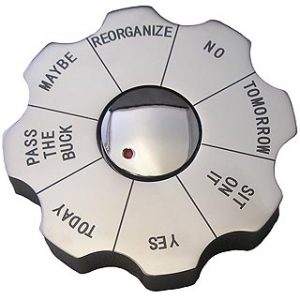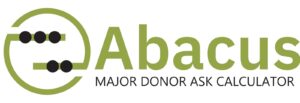The United States, arguably, is in its fourth year of the “great recession.” Fallout from the country’s debilitating economic environment has created grueling financial, professional, and personal hardships for millions of people. A complicating factor bottlenecking recovery includes the shroud of “uncertainty” that continues to be cited as an obstacle to renewed hiring by the private sector. Many non-profit organizations (NPOs) also cite uncertainty when considering launching new fund raising campaigns and initiatives.
Uncertainty. Just the word itself is a nonstarter. The notion of uncertainty is no longer relevant to forward progress in any organization. We have all lived through three-plus years of these trying times. What has become all too evident – in the headlines and unemployment lines – is that the economy will remain sluggish for the foreseeable future, political dementia and hypocrisy will continue to impede solutions, and the polarization between wealth and struggle will continue to increase. Of these things we can be certain.
The time is now to begin planning using a horizon longer than twelve months. Based on lessons learned over the past few years, we can all be better predictors of economic worst case scenarios for our organizations. We should also have a strong level of certainty about the state of our donors based on past and current giving levels. If you interview your more valued donors – as we do for our advancement program and campaign planning studies – you will most likely find that they are far less concerned and paralyzed by the recession than you and your organization’s leadership. For most major donors, charitable giving has not declined in the past two years and their ability to make a significant campaign gift remains viable.
So how can you work with “uncertainty” to make decisions that are certain to benefit your organization? As addressed in past posts, advancement officers need to make decisions based on the data and not personal biases or the biases of board members who may not be among your most important donors. Reading between the lines, boards today frequently make decisions which validate inaction, citing “economic uncertainty.” This in fact is a convenient deflection to personally avoid a campaign solicitation. It may in fact not be the right time for them, but the financial well being of your NPO and those its serves must be the primary concern.
Admittedly, this is a steep hill to climb. But, if you are confident in the loyalty and capacity of your donors, and your NPO has a campaign or initiative on its radar, avoid the specter of board deflection and get the data. Commission a study and take the temperature of your donors. There are many NPOs that have raised millions of dollars toward realistic goals between 2008 and 2011…and of that I am certain.
Your takes:
- Evaluate today’s “certain-uncertain” economic conditions anew and with fresh perspective in planning the long range fundraising strategy for your NPO.
- Do not fall victim to your personal biases or those of your board members and senior management as an excuse for inaction.
- Get the facts from your donors and take the guesswork out of your planning.
For more information about Copley Raff and its spectrum of not for profit consulting services, please see www.copleyraff.com.


